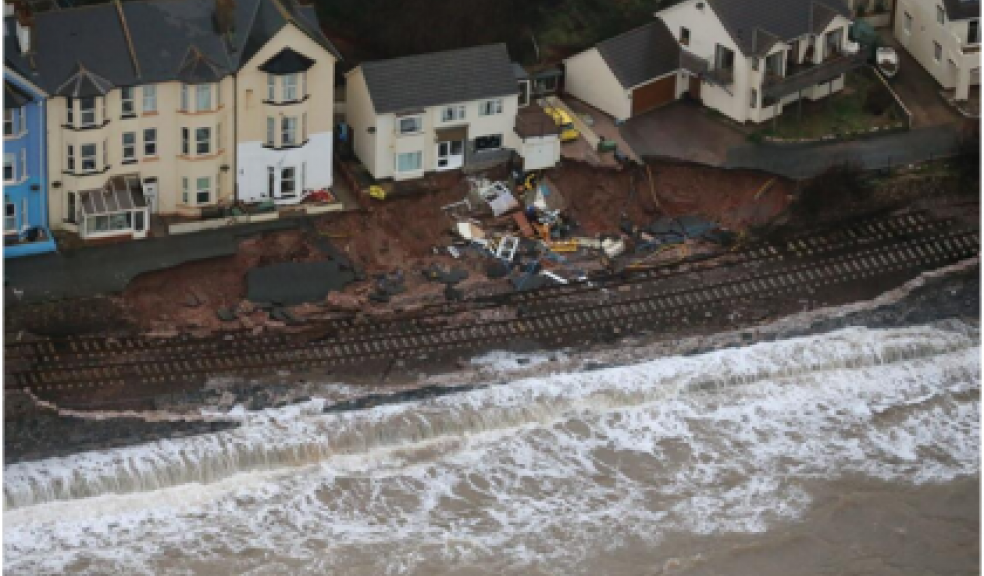
Report calls for more resilient transport networks
Devon County Council has today (Wednesday 14 May) issued a report highlighting the need for greater Government investment to provide more resilient transport networks.
The Extreme Weather Resilience Report focuses on the winter storms from December 2013 to February 2014 and its impact on the region’s communities, infrastructure, transport links and local economy.
It details how the collapse of the sea wall at Dawlish in February resulted in 7,500 full or part service cancellations to and from west of Exeter St David’s, and how the maintenance backlog on Devon’s 8,000 mile highway network, which is bigger than any other local authority in the country, has escalated to an estimated £767 million.
In order to adapt to the increased likelihood of future extreme events, the report clearly identifies that strategic rail and highway interventions are needed in order to maintain vital connectivity for Devon, Somerset, Plymouth, Torbay and Cornwall.
It recommends that:
- The current emphasis on A and B roads needs to be maintained, with additional funding required for the C road network to make it safe and more resilient. The unclassified road network also needs to be reduced and made safe with additional funding, new maintenance methods and greater community involvement.
- The £31.3 million resilience improvement programme by Network Rail should be implemented immediately and long term resilience solutions should be identified on the Somerset Levels.
- Increased funding and support is needed for Lead Local Flood Authority flood risk management measures of approximately £1 million per annum for new studies, scheme preparation and to undertake small scale improvements. This increased funding would be used to tackle new recovery and resilience requirements, on top of the backlog of existing and planned work.
Devon County Council Leader Councillor John Hart announced at today's Cabinet meeting that the report would be issued to MPs. He said: “This report highlights the cost of the damage from the last two winters and the toll its taken on our transport networks. The Devon economy, and that of the wider South West, cannot afford to be cut off from the rest of the country again. We also have a significant funding gap which, in the event of any future severe weather events, leaves parts of the network vulnerable to damage and further disruption. During these times of severe financial pressures, additional support is needed now to carry out lasting repairs rather than having to mend and make do.”
Councillor Stuart Hughes, Devon County Council Cabinet Member for Highway Management and Flood Prevention, said: “We have seen the immediate financial implications of repairs needed after the severe winter, but the maintenance burden will be felt for many years to come, especially as we’re still dealing with the legacy of damage caused during the 2012/13 floods.
"Despite putting extra resources into repairs, we have suffered a massive increase in pothole numbers. Although we have received £7 million in additional funding from the Government, this will only help us cover some of the costs of the damage sustained to Devon’s roads. We will also bid for a share of the Government’s £168 million fund for pothole repairs and the County Council has put a case to the Department for Transport for £15 million of extra capital funding in 2014/15.”
The number of potholes repaired on Devon’s roads is around 2,000 during an average month. This jumped to more than 7,500 in January, 7,900 in February and over 10,500 in March.
To tackle the problem, pothole repair teams across the county have been increased from 13 to over 40, with an extra 64 staff enlisted to carry out repairs at an additional cost of around £93,000 a week.
The report can be viewed here.













